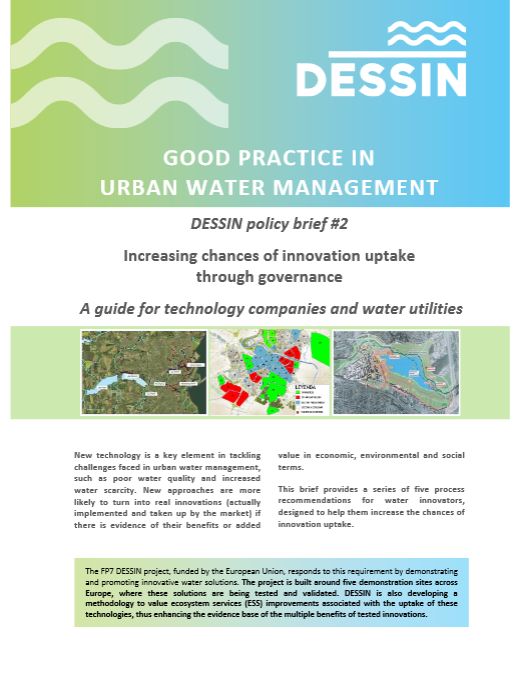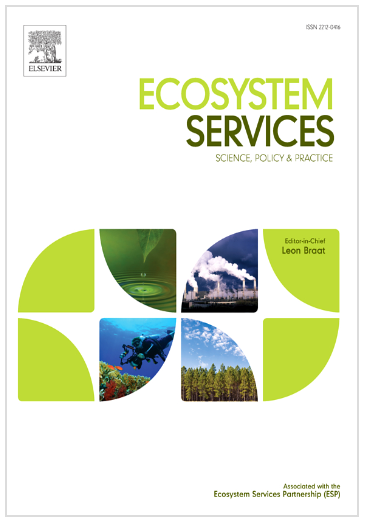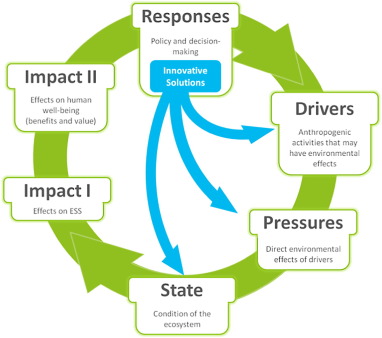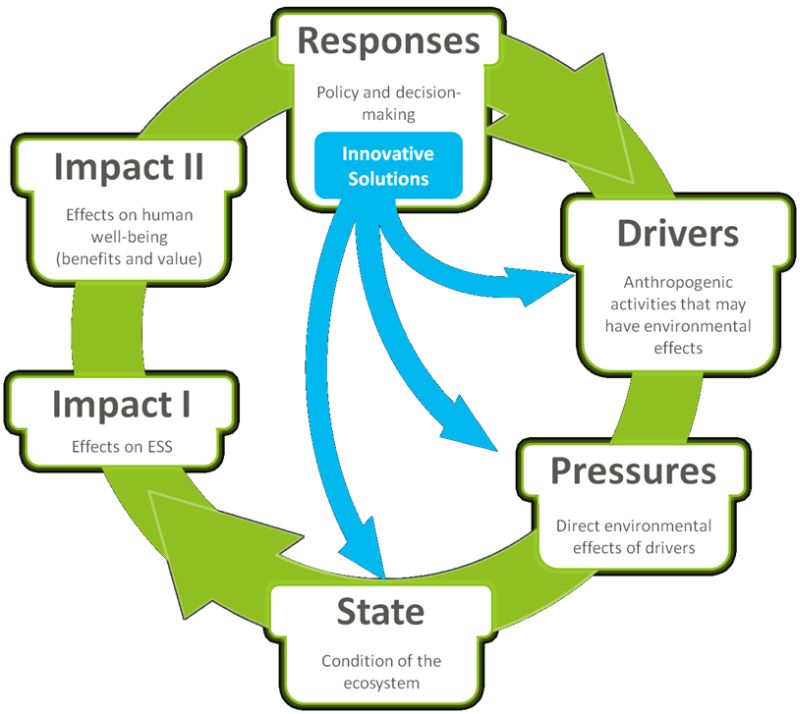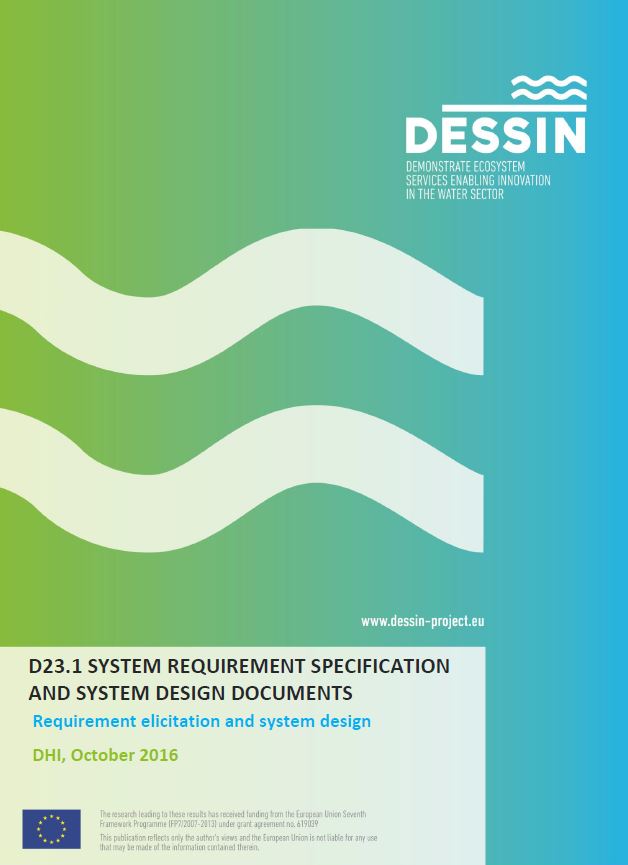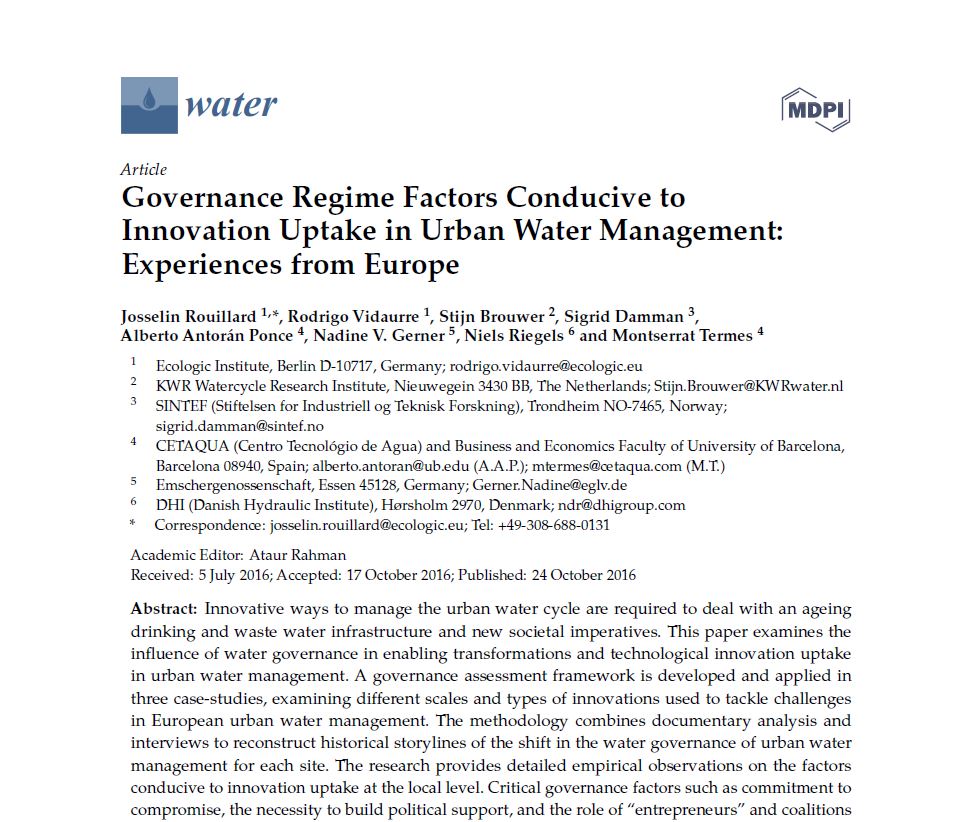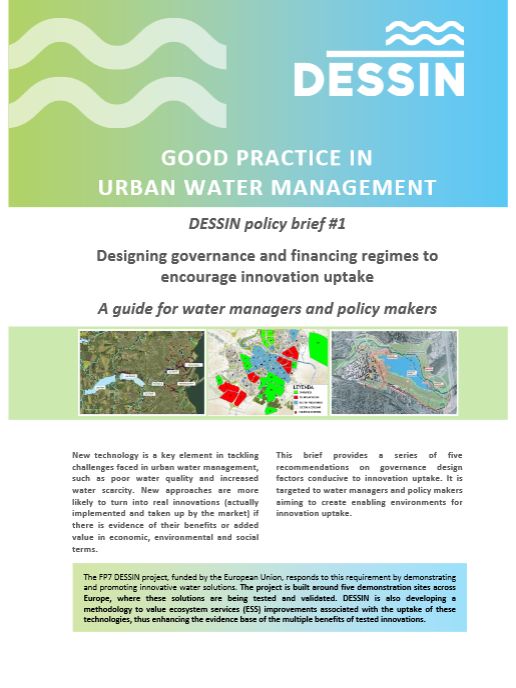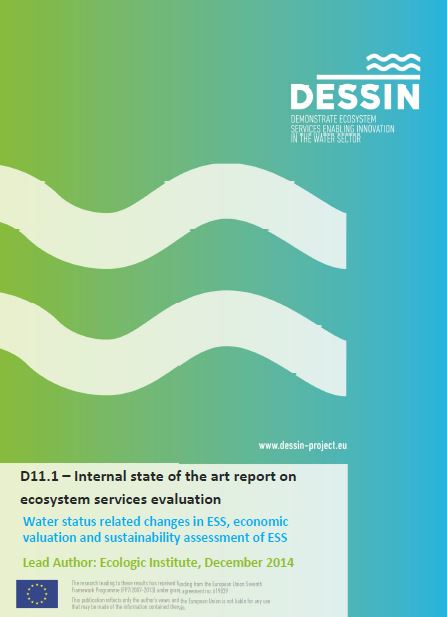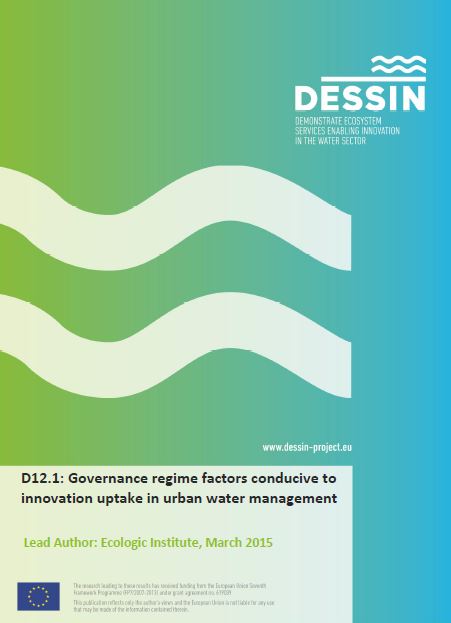Increasing Chances of Innovation Uptake Through Governance
A guide for technology companies and water utilities
- Publication
- Citation
Vidaurre Rodrigo and Rouillard Josselin: Increasing chances of innovation uptake through governance. A guide for technology companies and water utilities. DESSIN policy brief 2. October 2015.
Within the European water research project "Demonstrate Ecosystem Services Enabling Innovation in the Water Sector (DESSIN)" a policy brief on governance factors conducive to innovation in the urban water sector was published. Rodrigo Vidaurre and Josselin Rouillard from Ecologic Institute, provide five key recommendations on the types of incentives and stakeholder management strategies that can be employed to encourage innovation uptake in urban water management. The policy brief is targeted to technology companies and innovators and available for download.
The uptake of technologies is a key element in tackling challenges faced in urban water management, such as increased water scarcity, poor water quality or flooding. New technologies are more likely to be tested and adopted if there are supporting institutional arrangements and policy instruments. Local and national actors involved in urban water management can use a range of resources and strategies to promote innovation uptake. The policy brief presents innovative governance strategies to promote new technologies into urban water management systems.
The brief was designed to meet the demands of well-functioning systems which may aim to improve public image and build additional political support in the long term. In turn, increased legitimacy and support can help tackle future challenges such as those associated with climate change impacts or, potentially, stricter environmental standards.
Five key recommendations are provided together with concrete illustrations. Recommendations focus in particular on the types of incentives and stakeholder management strategies that can be employed to encourage innovation uptake. They are based on a comparative assessment of case-studies in widely different contexts and for different issues (water quality, scarcity, flooding and hydro-morphology). Examples include approaches to building partnerships and seeking compromise, and strategies to gain political support and leverage funding. Several illustrations are provided together with web-links to relevant additional resources.
The policy brief was developed within the FP7 DESSIN project, funded by the European Union with contributions from Nadine Gerner (Emschergenossenschaft), Sigrid Damman (SINTEF), Niels Riegels (DHI), Stijn Brouwer (KWR), Montserrat Termes and Antonio Antorán Ponce (CETaqua). The project aims to demonstrate and promote innovative water solutions such as water efficient devices, district metered areas or real-time monitoring and control of water quality and run-off. The project is built around five demonstration sites across Europe, where these solutions are being tested and validated. DESSIN is also developing a methodology to value ecosystem services (ESS) improvements associated with the uptake of these technologies, thus enhancing the evidence base of the multiple benefits of tested innovations.
